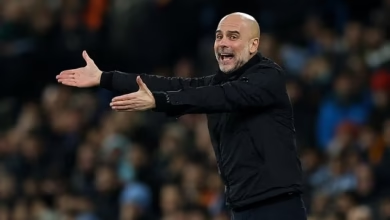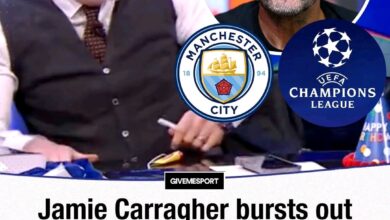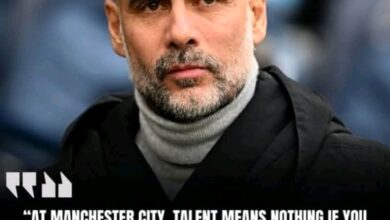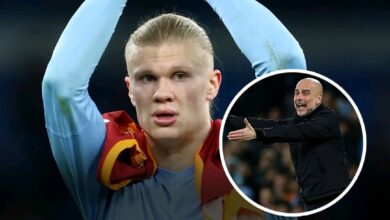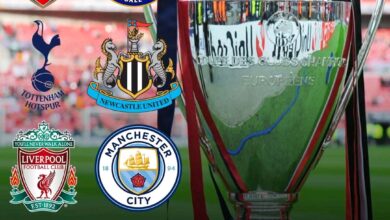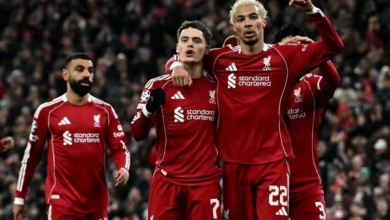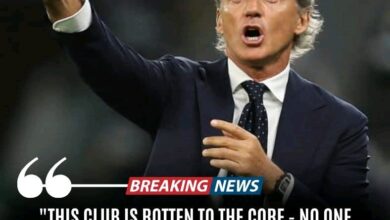Kevin De Bruyne says he once played with a midfielder at Man City who was better than Sergio Aguero
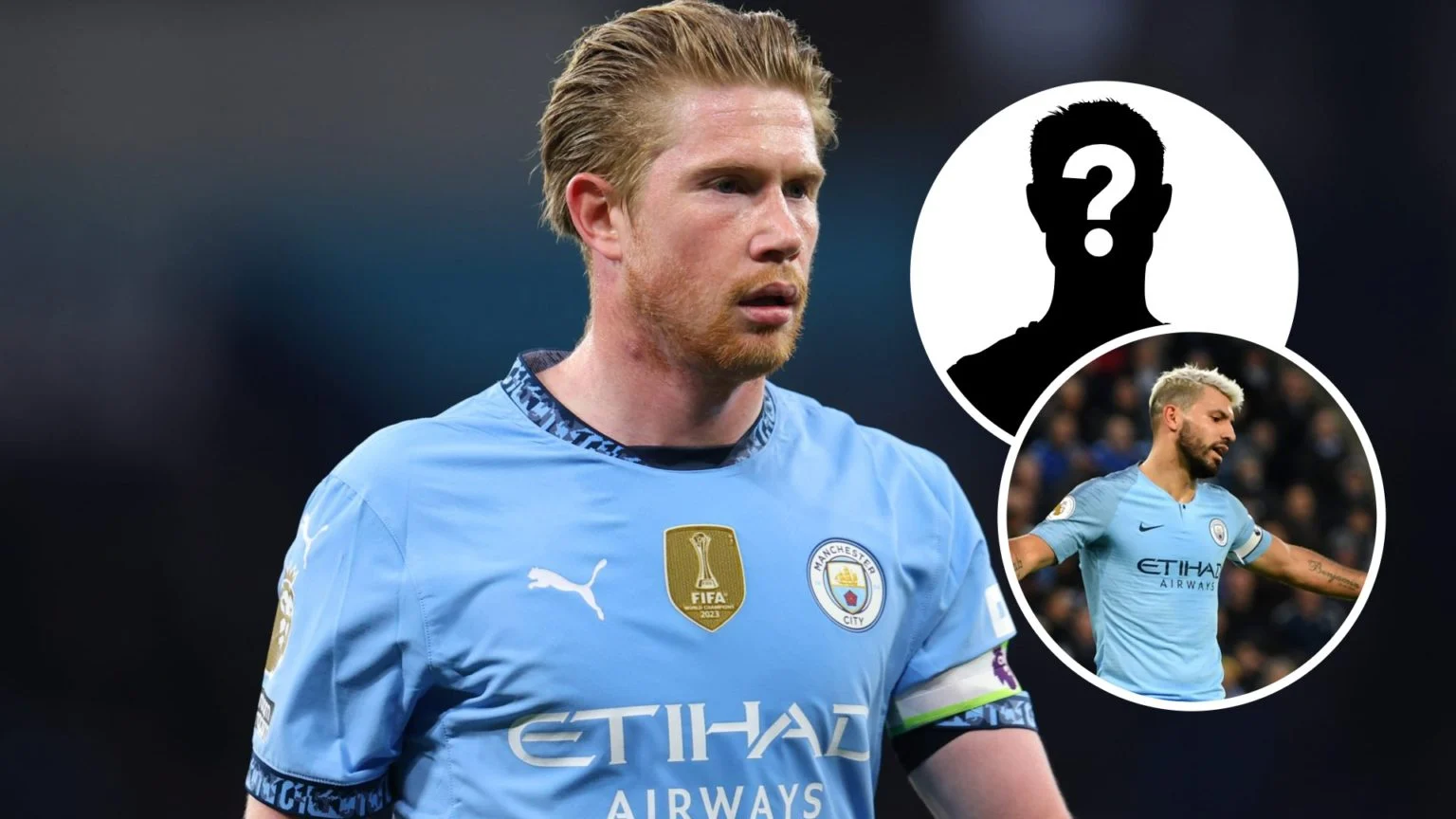
As Manchester City’s turbulent 2024-25 season draws to a close, the club finds itself in a period of significant transition. With legendary midfielder Kevin De Bruyne preparing to depart the Etihad Stadium after a decade of extraordinary service, the Belgian maestro has been reflecting on his remarkable journey with the Citizens, offering fascinating insights into his teammates, both past and present, and the legacy he leaves behind.
The End of an Era: Kevin De Bruyne’s Manchester City Journey
Kevin De Bruyne’s impending departure from Manchester City represents the end of one of the most successful partnerships in modern football history. After ten transformative years at the Etihad Stadium, the 33-year-old Belgian international will allow his contract to expire this summer, bringing to a close a chapter that has seen him establish himself as one of the greatest midfielders of his generation.
The impact of De Bruyne’s decade in Manchester cannot be overstated. Arriving from Wolfsburg in 2015 for what then seemed like a substantial £55 million fee, the Belgian quickly justified every penny of City’s investment. His vision, passing ability, and knack for crucial goals have been instrumental in the club’s unprecedented success during the Pep Guardiola era.
Throughout his time at City, De Bruyne has accumulated an impressive trophy haul of 19 major honors, including six Premier League titles, two FA Cups, six League Cups, one Champions League, one UEFA Super Cup, and one FIFA Club World Cup. His individual statistics tell the story of a player who has consistently delivered at the highest level: 422 appearances yielding 108 goals and 177 assists, numbers that place him among the elite playmakers in world football.
The midfielder’s journey has not been without its challenges. Injuries have periodically interrupted his rhythm, most notably during crucial periods when City needed him most. However, his ability to return from setbacks stronger than ever has become a hallmark of his character, embodying the resilience that has defined Manchester City’s rise to global prominence.
As De Bruyne prepares for his next chapter, reportedly with Italian giants Napoli, his reflections on his time at City provide valuable insights into the culture and quality that have made the club so successful. His recent comments about teammates, both current and former, offer a unique perspective from someone who has been at the heart of City’s golden era.
The Great Debate: David Silva vs. Sergio Aguero
In a revealing moment during a recent TikTok game with Manchester City’s social media team, De Bruyne was asked to choose between some of the club’s greatest ever players in a “Winner Stays On” format. When faced with the choice between David Silva and Sergio Aguero, two undisputed legends of the modern era, the Belgian’s decision was both surprising and telling.
De Bruyne ultimately chose David Silva over Sergio Aguero, a decision that has sparked considerable debate among City fans and football analysts alike. This choice reflects not just personal preference, but a deep understanding of what makes a footballer truly exceptional at the highest level.
Sergio Aguero, widely regarded as Manchester City’s greatest ever goalscorer, left an indelible mark on the club’s history. His 260 goals in 390 appearances included some of the most memorable moments in Premier League history, none more so than his last-gasp winner against Queens Park Rangers in 2012 that delivered City’s first Premier League title in dramatic fashion. The Argentine’s ability to find the net in crucial moments made him a talismanic figure, and his partnership with De Bruyne during their overlapping years at the club was one of the most devastating attacking combinations in world football.
However, De Bruyne’s choice of David Silva speaks to a different kind of appreciation for footballing excellence. Silva, like De Bruyne himself, was a player who could control the tempo and direction of matches through pure technical ability and football intelligence. The Spanish maestro’s decade at City from 2010 to 2020 coincided with the club’s transformation from ambitious upstarts to established powerhouse.
Silva’s statistics, while impressive, tell only part of his story. His 436 appearances yielded 77 goals and 136 assists, but these numbers fail to capture his ability to dictate play, create space for teammates, and maintain possession under pressure. Often operating in the pockets of space between opposition lines, Silva possessed an almost supernatural ability to find passes that others couldn’t see, much like De Bruyne himself.
The comparison between Silva and De Bruyne reveals two players cut from similar cloth but with distinct characteristics. Silva was the subtle orchestrator, the player who could slow down or speed up play as required, always maintaining control and rarely losing possession. His close control in tight spaces was legendary, and his ability to retain the ball under pressure provided City with a crucial outlet during difficult moments in matches.
De Bruyne, by contrast, has always been more direct in his approach. His game is built around incisive through balls, powerful shooting from distance, and the ability to create chances from seemingly impossible positions. Where Silva was the subtle artist, De Bruyne has been the explosive catalyst, capable of changing the course of matches with a single moment of brilliance.
Tactical Evolution and Playing Styles
The tactical evolution of Manchester City during the tenures of both Silva and De Bruyne provides fascinating context for understanding their respective contributions. Silva’s peak years coincided with the early stages of City’s rise under Roberto Mancini and later Manuel Pellegrini, when the team was still establishing its identity as a dominant force in English football.
Under Pep Guardiola’s guidance from 2016 onwards, both players adapted their games to fit into the Catalan coach’s intricate tactical system. Silva’s natural intelligence and technical ability made him an ideal fit for Guardiola’s possession-based approach, while De Bruyne’s versatility allowed him to operate in multiple positions across the midfield and attacking lines.
The overlap period when both players were at their peak, roughly from 2016 to 2020, represents perhaps Manchester City’s most dominant era in domestic football. The combination of Silva’s control and De Bruyne’s creativity, supported by the goals of Sergio Aguero, formed the backbone of teams that redefined what was possible in terms of attacking football in the Premier League.
Guardiola’s tactical flexibility meant that both players could coexist in the same team, with Silva often operating in deeper positions as a central midfielder, while De Bruyne was given more freedom to drift wide or push higher up the pitch. This tactical fluidity became a hallmark of City’s play during this period, with both players demonstrating the intelligence and adaptability that world-class footballers possess.
The Current Season: Challenges and Standout Performers
The 2024-25 season has presented Manchester City with unfamiliar challenges. Finishing third in the Premier League represents a disappointment by the club’s recent standards, though securing Champions League qualification remains crucial for maintaining their status among Europe’s elite clubs.
Despite the relative struggles, several players have stood out as beacons of consistency and quality. The debate over Manchester City’s player of the season has centered around two main candidates: Omar Marmoush and Josko Gvardiol, each representing different aspects of the club’s approach to squad building and tactical flexibility.
Omar Marmoush’s impact since his January arrival has been immediate and substantial. The Egyptian forward’s goal-scoring ability and work rate have provided City with a different dimension in attack, particularly during a season where traditional goal-scoring sources have been less reliable. Peter Crouch and Joe Cole have both endorsed Marmoush as their choice for City’s player of the season, recognizing his contribution during a relatively short period at the club.
However, Rio Ferdinand’s selection of Josko Gvardiol for this honor reflects a deeper appreciation for consistent excellence across an entire campaign. The Croatian defender’s versatility and reliability have made him an indispensable part of Guardiola’s tactical setup, capable of operating at both center-back and left-back with equal effectiveness.
Josko Gvardiol: The Modern Defender
Gvardiol’s emergence as one of Manchester City’s most important players represents the successful evolution of defending in modern football. At just 23 years old, the Croatian international embodies the qualities that Pep Guardiola values in his defenders: technical ability, tactical intelligence, and positional flexibility.
His statistics this season tell the story of a player who has embraced the demands of playing for one of the world’s elite clubs. With 53 appearances across all competitions, Gvardiol has demonstrated remarkable durability and consistency. His six goals and two assists from defensive positions highlight his contribution to City’s attacking play, a crucial aspect of Guardiola’s tactical philosophy.
The partnership between Gvardiol and Ruben Dias at center-back has provided Manchester City with stability during a season of transition. Their understanding and complementary skills have created a defensive foundation that allows the team’s attacking players to express themselves with confidence, knowing that the backline remains secure.
Ferdinand’s recognition of Gvardiol’s contributions reflects the defender’s ability to perform at the highest level in multiple positions. This versatility has made him invaluable to Guardiola, who prizes players capable of adapting to different tactical requirements within the same match.
The question of Gvardiol’s best position remains intriguing. While he has shown proficiency at left-back, many observers believe his future lies at center-back, where his aerial ability, pace, and reading of the game can have maximum impact. The partnership with Dias suggests that Guardiola may have found his preferred central defensive combination for the coming seasons.
The Broader Context: Manchester City’s Transition Period
Manchester City’s current situation reflects the natural evolution of a successful football club. The departure of established stars like De Bruyne creates opportunities for emerging talents while requiring tactical adjustments from the coaching staff. This transition period, while challenging, also presents exciting possibilities for the club’s future development.
The integration of new signings like Marmoush alongside established players like Gvardiol demonstrates the club’s commitment to maintaining competitive standards while refreshing the squad. The success of these integrations will largely determine how successfully City navigates this period of change.
Pep Guardiola’s tactical adaptations during this season have shown his willingness to evolve his approach based on available personnel. The increased reliance on defensive solidity, exemplified by Gvardiol’s emergence, suggests a pragmatic shift that could serve the team well in European competitions.
The club’s continued presence in the Champions League ensures that Manchester City remains attractive to world-class players, crucial for maintaining the squad quality necessary to compete at the highest level. The upcoming summer transfer window will provide insights into the club’s strategic direction and ambitions for the immediate future.
Legacy and Future Implications
Kevin De Bruyne’s impending departure marks the end of an era, but his influence on Manchester City extends far beyond his direct contributions on the pitch. His professionalism, dedication, and footballing intelligence have set standards that will influence the club’s culture for years to come.
The comparison between De Bruyne and David Silva, two players who represent different generations of Manchester City excellence, highlights the continuity of quality that has defined the club’s modern era. Both players, in their own ways, have elevated the standard of play at the Etihad Stadium and contributed to the club’s transformation into a global powerhouse.
Looking ahead, Manchester City faces the challenge of replacing De Bruyne’s creativity and leadership while maintaining the tactical flexibility that has been crucial to their success. The emergence of players like Gvardiol and the impact of new signings like Marmoush suggest that the club possesses the quality and depth necessary to remain competitive at the highest level.
The season’s conclusion, with Champions League qualification secured despite domestic disappointments, provides a foundation for future success. The lessons learned during this transitional period, combined with the club’s continued investment in player development and tactical innovation, position Manchester City well for the challenges ahead.
As the football world prepares to bid farewell to Kevin De Bruyne’s Manchester City career, his legacy as one of the Premier League’s greatest ever players remains secure. His choice of David Silva over Sergio Aguero in that TikTok game may seem like a small moment, but it encapsulates the respect and understanding between two masters of their craft, united by their commitment to excellence and their contribution to one of the most successful periods in Manchester City’s history.
The debate over the club’s greatest ever player will continue, but the impact of both De Bruyne and Silva on Manchester City’s golden era is undeniable. As new stars like Gvardiol emerge and established players like Marmoush make their mark, the foundation laid by these midfield maestros will continue to influence the club’s pursuit of glory both domestically and in Europe.






